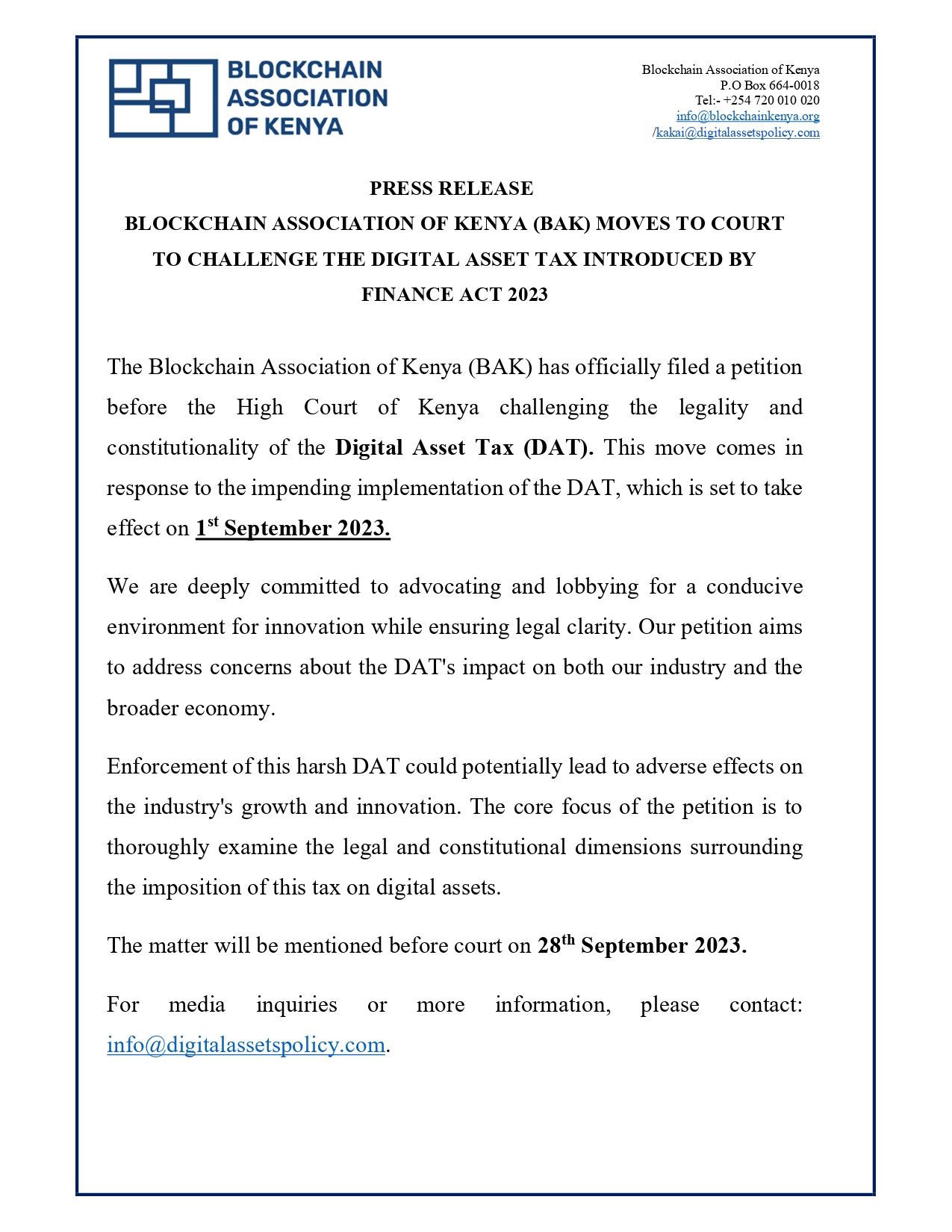Kenyan blockchain experts are challenging the legality of the crypto tax
Blockchain Association of Kenya has moved to court to challenge the legality of the digital asset tax introduced by the Kenyan government through the 2023 Finance Act.

The Blockchain Association of Kenya (BAK) has filed a petition to challenge the legality of Digital Asset Tax (DAT) which is meant to commence today, September 1.
“The core focus of the petition is to thoroughly examine the legal and constitutional dimensions surrounding the imposition of this tax on digital assets,” says S.A Kakai, BAK's legal and policy director. According to Kakai, the association will appear in court on September 28, for the “mention of our interim application”.
The Digital Asset Tax was introduced in the country's 2023 Finance Act. The act imposes a 3% tax on the transfer or exchange value of digital assets.
According to the act, digital assets refer to “anything of value that is not tangible and cryptocurrencies, token code, number held in digital form and generated through cryptographic means or otherwise, by whatever name called, providing a digital representation of value exchanged with or without consideration that can be transferred, stored or exchanged electronically; and a non-fungible token (NFTs) or any other token of similar nature, by whatever name called”.
Earlier in March, BAK outlined seven reasons opposing the Digital Asset Tax. They include unclear classification of digital assets, ambiguity surrounding transfers of digital assets and failure to consider loss-making transactions. “The volatility and speculative nature of digital assets mean that not all transfers and exchanges result in profits. Ignoring this aspect could lead to unfair taxation and hinder the growth of the industry,” the association said.

The regulation also requires crypto exchanges such as Binance and Yellow Card, as well as individuals facilitating the exchange or transfer of digital assets, to withhold tax deductions and forward them to the country’s tax authority within 24 hours. However, these exchanges must first register with the tax authority in order to remit such deductions.
According to BAK, “converting digital assets into fiat currency, such as Kenyan Shillings, involves a process called off-ramping, which can take several business days.”
The association of Kenyan blockchain experts said it will continue its advocacy to ensure clarity of the regulations in driving a thriving ecosystem. “Enforcement of this harsh DAT could potentially lead to adverse effects on the industry's growth and innovation,” BAK said in a statement posted on X.
Later this month, the Blockchain Association of Kenya is holding a conference tagged “Digital Assets Policy Safari” to design the blue print for Kenya’s National Digital Assets Policy. The agenda for the conference includes a keynote speech on “the role of government in enabling emerging technologies for economic growth”.







Comments ()